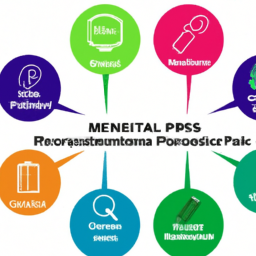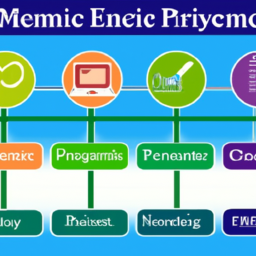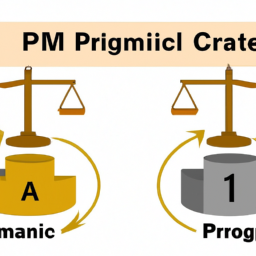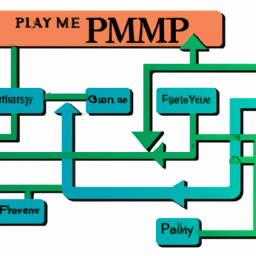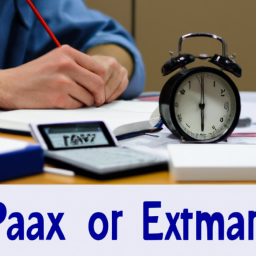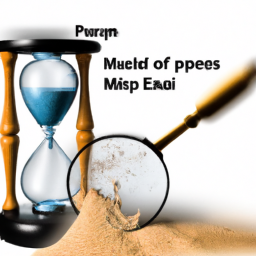Did you know that 87% of project managers who hold a Project Management Professional (PMP) certification report higher salaries? If you’re considering a career in project management, you may be wondering if the PMP exam is really the gold standard.
In this article, we’ll explore the benefits of having a PMP certification, the exam requirements and eligibility, and the importance of this certification in the industry. We’ll also discuss the PMP exam format and provide valuable preparation tips.
Plus, we’ll explore alternatives to PMP certification for project managers.
Key Takeaways
- PMP certification leads to higher salaries for project managers
- Employers prefer candidates with PMP certification
- PMP certification validates skills and competence in managing projects effectively
- Thorough preparation and understanding of the exam format are key to success
Benefits of Having a PMP Certification
Having a PMP certification offers numerous benefits for project managers. It can greatly contribute to your career advancement and lead to a higher salary.
With a PMP certification, you demonstrate your knowledge and expertise in project management, making you a valuable asset to any organization. Employers recognize the value of a PMP certification and often prefer candidates who have this credential. It opens up doors to more opportunities and positions with increased responsibilities.
Additionally, project managers with a PMP certification tend to earn higher salaries compared to their non-certified counterparts. This certification validates your skills and competence in managing projects effectively, which in turn, allows you to negotiate for better compensation.
Overall, obtaining a PMP certification can significantly enhance your career prospects and financial rewards.
PMP Exam Requirements and Eligibility
To be eligible for the PMP exam, you must meet the specific requirements outlined by the Project Management Institute (PMI). Here is a breakdown of the PMP exam application process:
-
Education: You must have a secondary degree (high school diploma, associate’s degree, or the global equivalent) and a minimum of 35 hours of project management education.
-
Experience: You need to have at least 4,500 hours of project management experience if you have a secondary degree, or 7,500 hours if you have a four-year degree.
-
Exam Fee: There is a fee associated with taking the PMP exam. PMI members pay a reduced fee compared to non-members.
Once you meet these requirements, you can submit your application to PMI. After your application is approved, you can schedule your exam and start preparing. The passing score for the PMP exam is not disclosed by PMI, but it is generally believed to be around 61%.
The Importance of PMP Certification in the Industry
If you want to stand out in the industry, obtaining a PMP certification is essential. This globally recognized certification demonstrates your expertise in project management and can open doors to career advancement opportunities.
With a PMP certification, you can showcase your commitment to professional development and your ability to lead and manage projects effectively. The industry recognition that comes with a PMP certification is invaluable.
Employers often prioritize candidates with PMP certifications, as it signifies their competence and dedication to their field. It gives you a competitive edge in the job market and increases your chances of landing lucrative positions with higher salaries.
PMP Exam Format and Preparation Tips
Let’s dive into the format of the PMP exam and some tips to help you prepare for it.
The PMP exam consists of 200 multiple-choice questions that cover various areas of project management. It is divided into five domains: initiating, planning, executing, monitoring and controlling, and closing.
To effectively study for the PMP exam, it is crucial to have reliable study materials. Look for reputable resources such as PMP exam study guides, practice tests, and online courses. These materials will provide you with a comprehensive understanding of the exam content and help you identify your areas of improvement.
Additionally, it is important to note that the passing rate for the PMP exam is around 60-70%. Therefore, thorough preparation and understanding of the exam format are key to increasing your chances of success.
Now, let’s explore some alternatives to PMP certification for project managers.
Alternatives to PMP Certification for Project Managers
Consider exploring other certification options in the field of project management as an alternative to PMP certification.
While the PMP certification is widely recognized and respected, there are other certifications that can also enhance your project management skills and boost your career prospects.
One such option is the Certified Associate in Project Management (CAPM) certification, which is designed for individuals with less project management experience. This certification validates your understanding of fundamental project management concepts and techniques.
Another alternative is the Agile Certified Practitioner (PMI-ACP) certification, which focuses on agile project management methodologies. This certification demonstrates your knowledge and expertise in managing agile projects.
Additionally, there are industry-specific certifications such as the Certified ScrumMaster (CSM) certification for professionals working in the scrum framework.
Exploring these alternatives will broaden your knowledge and make you a more versatile project manager.
Frequently Asked Questions
How Long Is the PMP Certification Valid For?
The PMP certification duration is valid for three years. To maintain your certification, you need to go through the PMP certification renewal process every three years.
This involves earning 60 professional development units (PDUs) through various activities such as attending training programs, participating in webinars, or contributing to the project management community.
PMP certification renewal ensures that project managers stay up-to-date with the latest industry practices and continue to meet the high standards set by the certification.
Is the PMP Certification Recognized Worldwide?
The PMP certification is recognized worldwide and offers numerous benefits to project managers. It validates your knowledge and skills in project management, enhancing your credibility and opening up global career opportunities.
To prepare for the PMP exam, you should invest time in studying the PMBOK Guide and other relevant resources. Additionally, taking practice exams can help familiarize yourself with the format and content of the exam.
Proper exam preparation is key to passing the PMP exam and earning this prestigious certification.
Can I Take the PMP Exam Online?
Yes, you can take the PMP exam online. The online exam format allows you to take the test from the comfort of your own home or office.
To be eligible for the online exam, you need to meet the PMP certification requirements, which include having a certain level of project management experience and completing the required training hours.
Taking the exam online offers convenience and flexibility for busy professionals pursuing their PMP certification.
What Is the Passing Score for the PMP Exam?
To pass the PMP exam, you need to score at least 61%. The exam is 4 hours long and consists of 200 multiple-choice questions. It tests your knowledge of project management processes, tools, and techniques.
The passing score reflects the level of proficiency required to be considered a certified project management professional. So make sure you study and prepare well to achieve that passing score and prove your expertise in the field.
Are There Any Prerequisites or Work Experience Requirements for the PMP Certification?
Before you can take the PMP exam, there are prerequisites and work experience requirements that you must meet.
You need to have a secondary degree (high school diploma, associate’s degree, or global equivalent) and at least 5 years of project management experience, with 7,500 hours leading and directing projects.
Alternatively, if you have a four-year degree or higher, you need 3 years of project management experience, with 4,500 hours leading and directing projects.
Conclusion
In conclusion, obtaining a PMP certification can undoubtedly bring numerous benefits to project managers. With its rigorous exam requirements and industry recognition, it serves as a gold standard in the field.
However, it is crucial to consider alternatives and weigh the options before committing to this path. So, is the PMP exam truly the ultimate measure of success for project managers? Only you can decide.
But one thing’s for certain, investing in professional development is always a wise choice.


